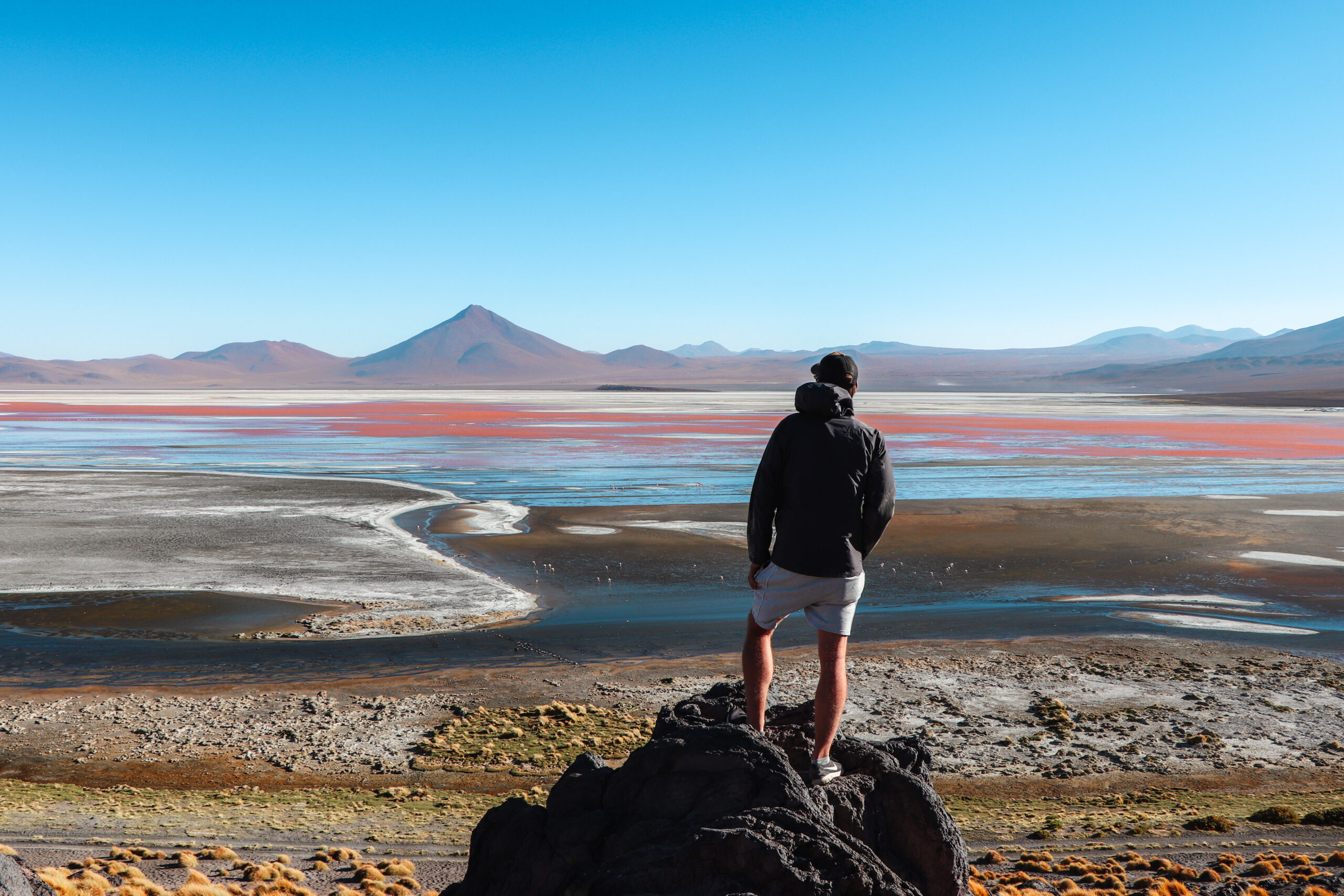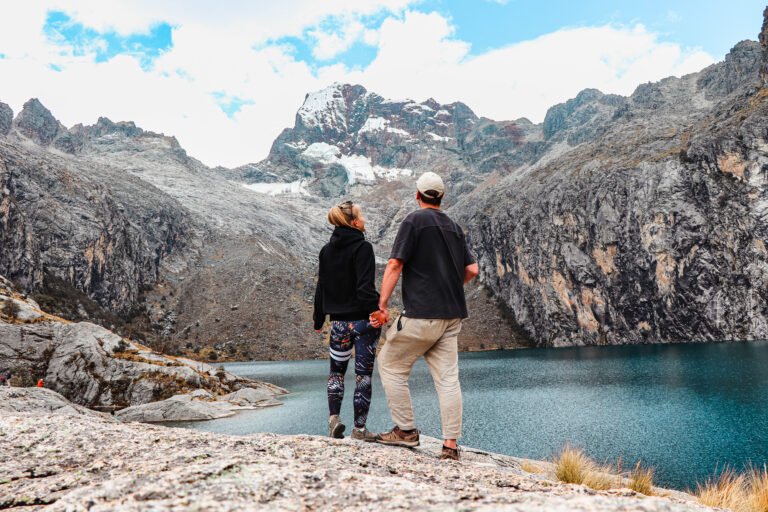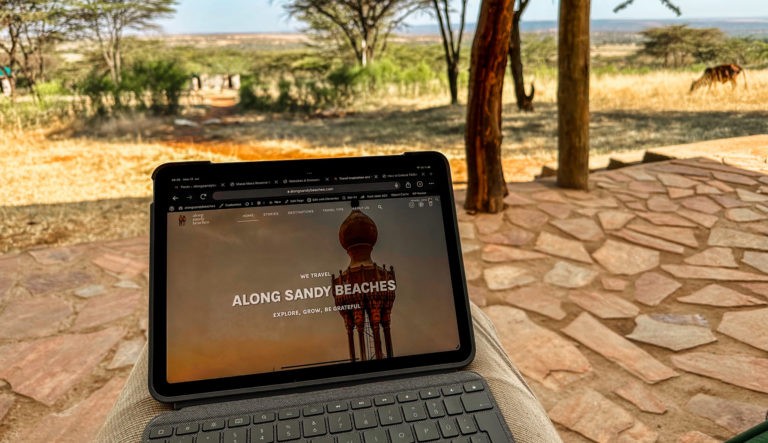Sustainable travel means responsibly exploring the world by reducing environmental impact. Remember the days when flying was really expensive? Today is different. Moving around has never been easier and more affordable, making traveling accessible for more people.
The downside, however, is that now the responsibility to travel sustainably lies on each one of us. And while tourism brings wealth and prosperity to countries, regions, and people, it can also hurt the environment in a way it won’t recover without a positive impact.
With this article, we want to raise awareness and provide you with practical tips about how to travel responsibly and reduce your environmental footprint.

Our Sustainable Travel Tips
Do you still know people who haven’t flown once in their lives? I don’t. And while we don’t want to put in the pillory for flying -ultimately there are good reasons for taking a flight-, I still think it is a good example of how the way we live and the things we do have changed over time.
And because we know that, as travelers, we leave a larger footprint than others, we want to provide you with some handy tips on how to travel responsibly. Keep in mind that every impact, as low as it be, is a contribution to the better. And while you will not change the world on your own, we can all do it collectively.
1. Pick a Sustainable Travel Destination
It all starts with picking a sustainable travel destination. But what does that really mean? And how do I know if my desired country is a sustainable travel destination?
There are a lot of factors that make a destination more favorable in terms of sustainability than another. So with this article, we want to reveal the “secret” of how sustainable travel is done. Or better say: Raise awareness for traveling responsibly, as it’s not a secret, it’s just not yet as popular as it should be. Hence, we want to provide you with useful tips and tricks to make your next trip a more sustainable one.
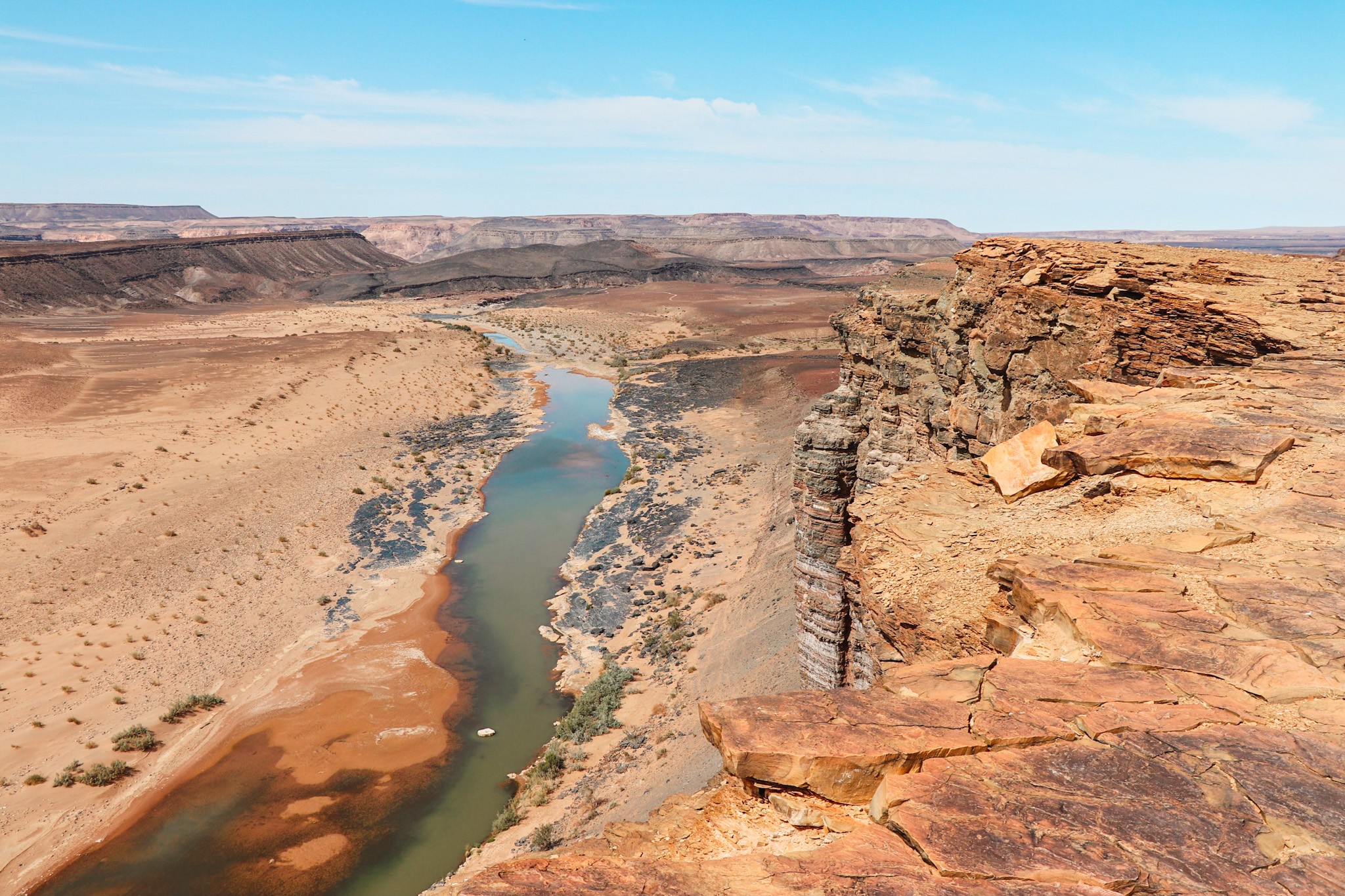
Pick countries that are working towards becoming carbon neutral
When deciding on your next travel destination, it’s crucial to factor in the ecological impact of your journey. Opt for nations actively striving to attain carbon neutrality, as they’re taking substantial steps to diminish their carbon footprint and embrace eco-friendly practices.
Consider destinations like Sweden and Denmark, renowned for their leadership in renewable energy adoption, or Costa Rica, celebrated for its strong commitment to eco-conscious power sources like hydroelectricity. By selecting countries prioritizing environmental sustainability, you are supporting a countries initiative against climate change making sure your travels are both remarkable and purposeful.

Don't follow travel trends
When choosing your sustainable travel destination don’t follow trends from Social Media, Movies, or Newspapers – make your own choice. We have had our best travels to places less popular.
For instance, we’ve traveled to Namibia, instead of South Africa. And we enjoyed our time in Estonia much more than in Finland (but this one may be biased, as Laura is Estonian ;-)).
Chasing hype means going to places everybody is traveling to. This not only negatively affects the environment, but may also be a less enjoyable travel experience.

Travel off-season
Traveling off-seasons has a lot of benefits. When we were traveling Thailand during the rainy season, we had a great time and didn’t regret a single day on our trip.
But I still remember how much we discussed about how it’s raining all day long and you can’t do anything else than stay in your hotel room.
People think that traveling off-season is not as rewarding, but often they’ve never tried. Not only did we get a great price on accommodation and flights, but we also experienced most of the places less crowded.
It was the same for our travels to Morocco, too. We thought we were crazy renting a car and driving into the Sahara desert mid-summer, but it turned out to be an unexpectedly “cool” travel experience.
And while that’s not only good for your trip, it also has a positive effect on sustainability. It gives nature the room to breathe, it allows wildlife the time to flourish, it helps locals to keep up their traditions, and -most importantly- it better balances an environmentally unhealthy amount of tourists over a year.
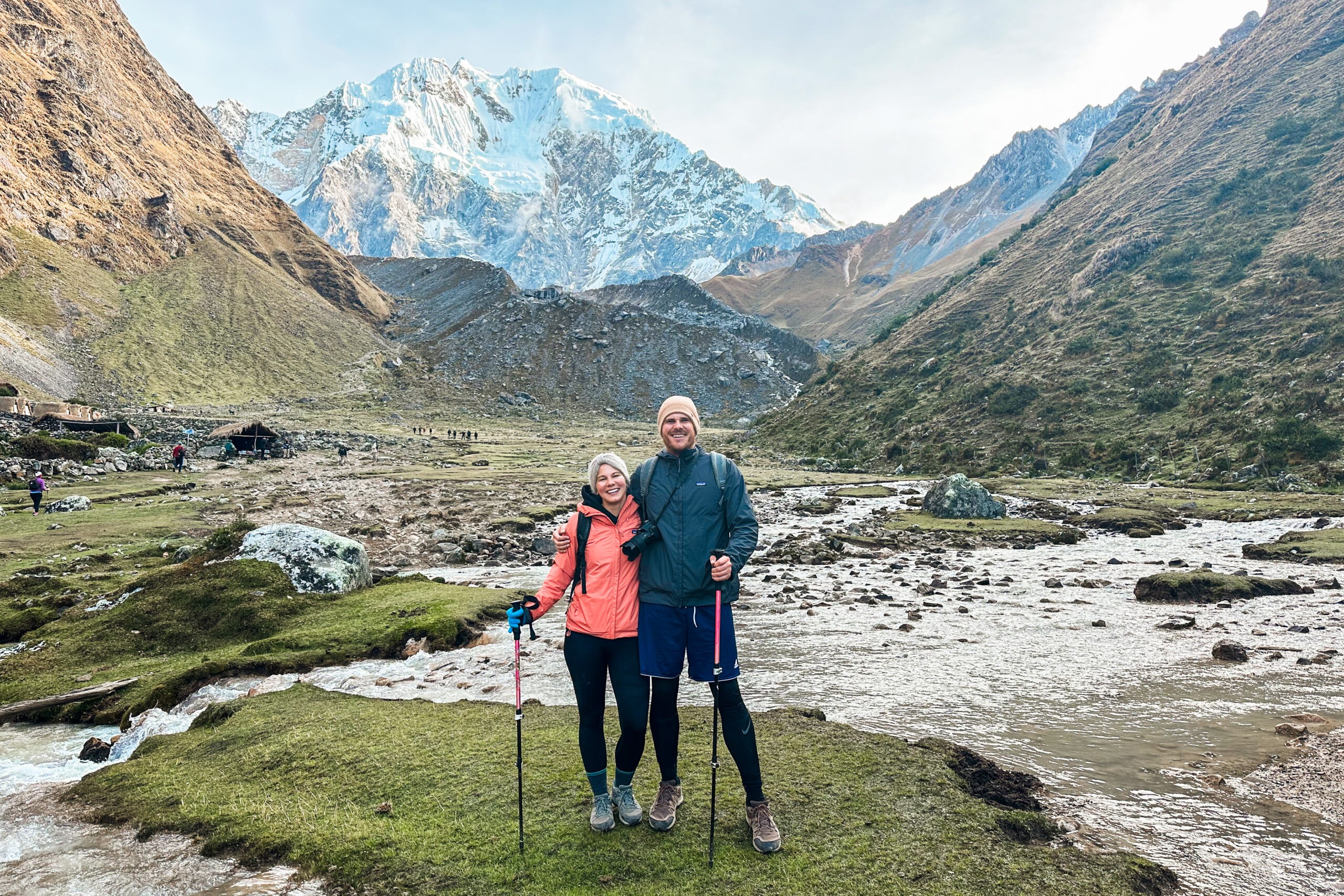
Avoid mass tourism
Ever been to Machu Picchu in July, visited the Caldera of Santorini in August, or took a tour to the Taj Mahal in January?
And while we can name so many more places experiencing mass tourism, it’s becomes clear that this extreme of people can’t be healthy for our environment. Avoid traveling to mass-tourism places and sights. There is always a better option.
When we were in Colombia, we decided to take a hike to the Lost City, instead of following the Inca Trail in Peru. Sure, we missed out on one of the bucket list experiences – but for us, it was no big deal.
Relevant Reading

Fly with an airline that invests into bio-fuels
When it comes to air travel, choosing an airline that invests in biofuels is a savvy environmental choice. These airlines are actively putting their resources into sustainable aviation fuels, which significantly reduce the carbon footprint of your flight.
For instance, companies like Lufthansa, KLM Royal Dutch Airlines and United Airlines are leading the way by incorporating biofuels into their operations. Choose to offset your carbon emission when flying, either via the airline website itself or by donating the additional to websites supporting that cause.

Book tours with companies that support eco-friendly traveling
Tours are part of every traveler’s itinerary. There are millions of tour operators which makes it hard to choose one that supports to experience your activity sustainably.
Read the tour reviews to find out how well the tour is organized, look at the pictures of other traveler’s, and visit their website to understand how they run their business. That’s a no-brainer, you would anyway do for planning your adventure – but this time from a sustainability travel point of view.
Find out things like: Is their business run by locals or do they collaborate with local tour guides? Are they taking care of the environment when operating? What types of activities are part of the itinerary?
Avoid any type of animal entertainment and mass tourism activities. Ultimately you want to explore the country authentically.

2. Pack Light
After you’re done picking your sustainable travel destination, you’re at the decision what to pack for your travels. And in fact, when it comes to traveling responsibly, one of the most impactful choices you can make is to pack light. Bringing only what’s truly necessary for your journey not only lightens your load but also reduces the environmental footprint of your travels.
Whether you’re taking airplanes, trains, ships, or cars, every additional kilogram adds to the fuel consumption of these modes of transportation. During our year-long journey around the world we were surprised by how little we required for our travels. The bulk of our weight savings came from leaving behind the ‘nice-to-haves,’ such as spare clothes, extra shoes, and excessive electronics.
Take a moment to reflect on your past vacations: Did you actually use all the items you packed in your suitcase? Streamlining your packing not only lightens your environmental impact but also enhances your travel experience, allowing you to focus on the essentials and savor the moments.
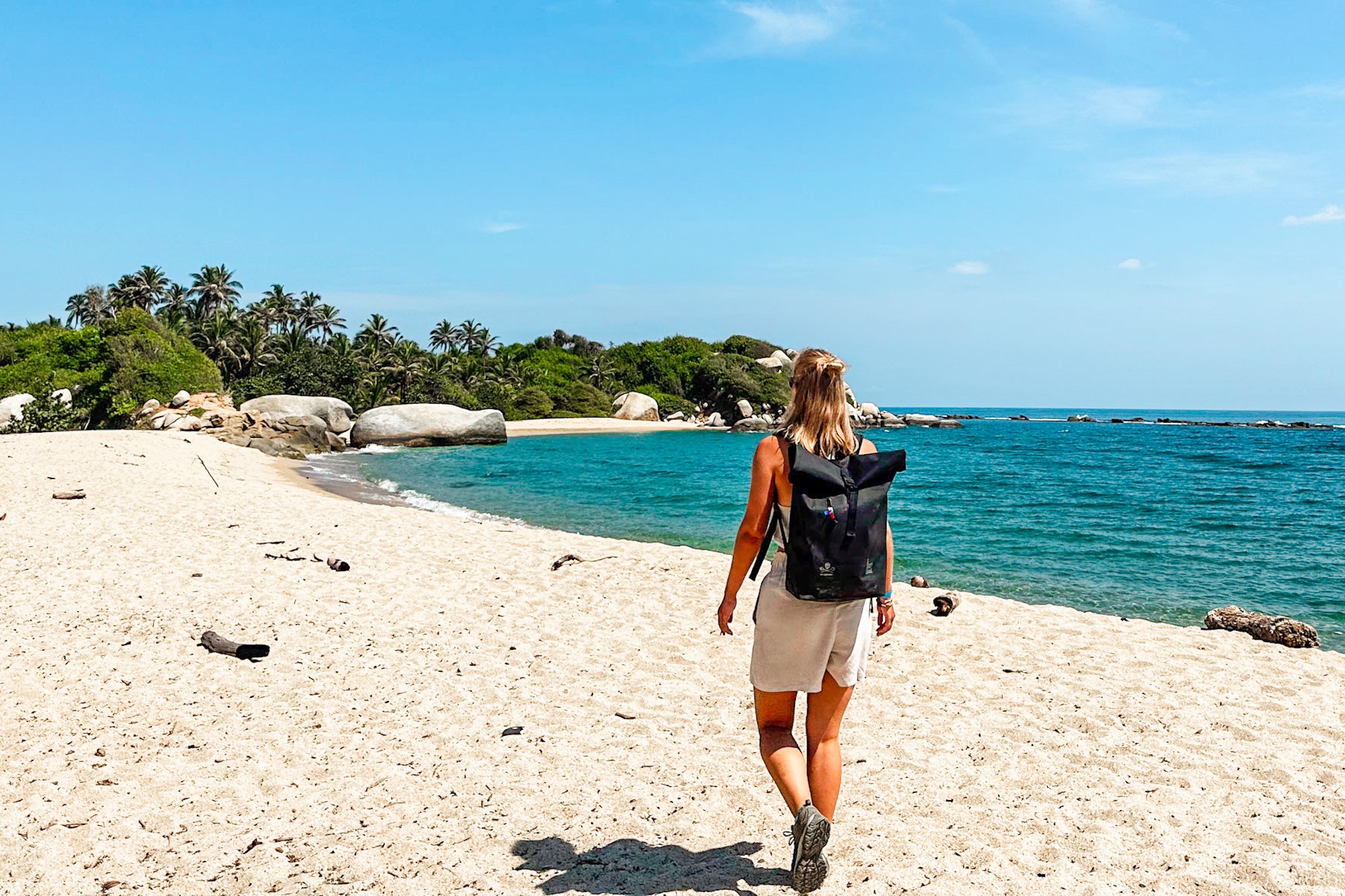
3. Eat Healthy
When traveling you often eat out at restaurants or go grocery shopping for your meals. Making responsible food choices does impact how sustainable your travel is.
Therefore, we collected some handy tips on how you can enjoy your meals responsibly.
Shopping groceries
Travelling responsibly means choosing regional products over imported ones, and choosing small markets over large shopping malls. That way you reduce your environmental footprint and at the same time support the locals. Bring your own backpack to the stores and don‘t buy any plastic bags. Take a reusable bottle with a water filter on your travels, so you don‘t need to buy any plastic bottled water.
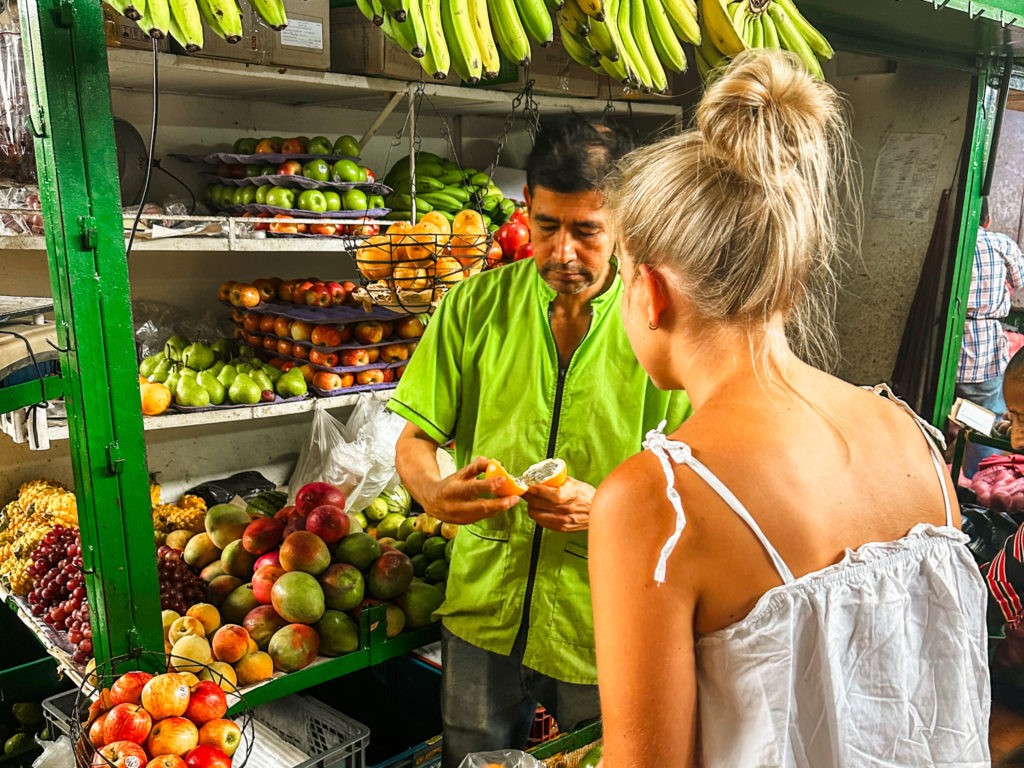

Going to a restaurant
When choosing a restaurant, pick a local one and avoid going to international chains to make sure that most of your food is sourced locally. International franchises often deliver their products around the globe, to make sure that your burger and fries always taste the same. When going out try to eat a little less meat, if you can.
To travel responsibly also means reducing plastic, so explicitly decline plastic straws in your juice or cocktail, as unfortunately these are still commonly used across many countries. Moreover, go to restaurants that serve a meal size that you can complete – or take leftovers with you.

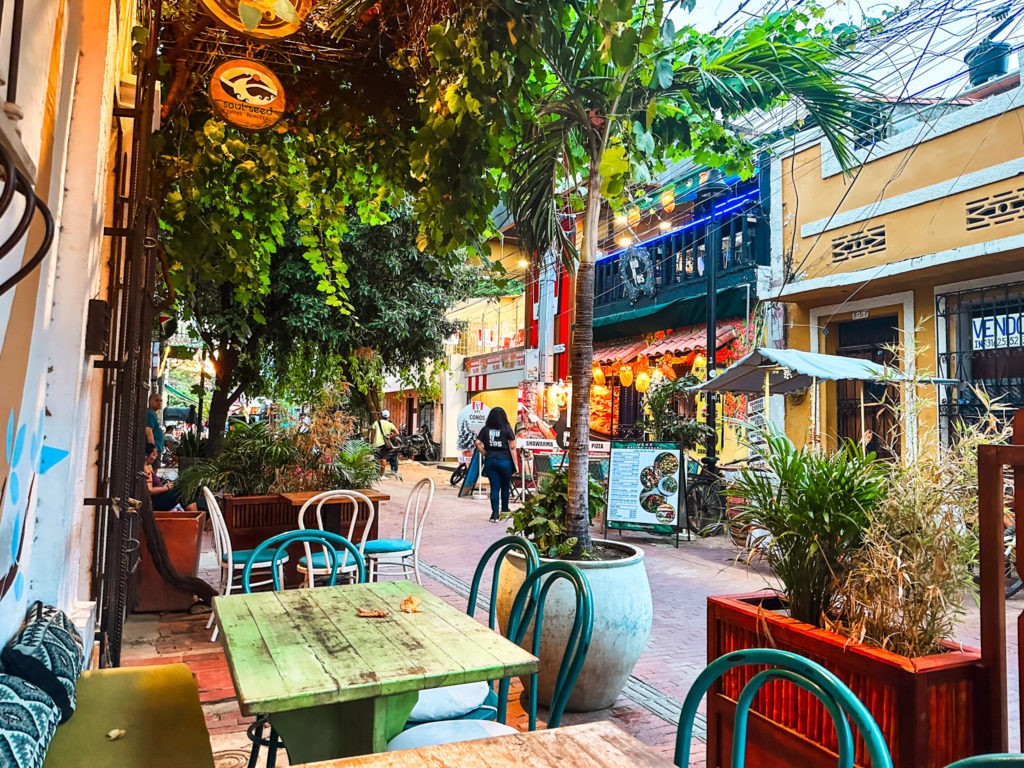
Food delivery
It’s almost always better to cook your own meal. But, we know, that sometimes you are really tired from an exciting day and need to convenience of a food delivery. So when it comes to food delivery during your travels, there are ways to make eco-friendly choices.
Call restaurants directly instead of ordering via an app. Often restaurants need to pay a large amount of their order value (up to 30%) for an order via a third party. Seek out eateries or services that prioritize eco-conscious packaging, by looking at some of their meal pictures.
Politely request minimal plastic wrapping and utensils, and, if possible, ask them to avoid unnecessary single-use plastics. For instance, if you already have cutlery in your apartment/hostel then mention that you don’t need any.
Another tip to travel responsibly is ordering from places that source their ingredients locally, bolstering nearby farmers and diminishing the environmental impact of food transportation. By making mindful choices in food delivery, you can savor your meals with the knowledge that you’ve played your part in nurturing a more sustainable travel experience.


4. Sleep Eco-Friendly
The accommodation you pick plays an essential part in how sustainably you will travel. Seek accommodations that prioritize eco-conscious practices.
Many hotels nowadays are part of green travel programs or are contributing some of their profits towards environmental action. The same applies to booking platforms.
For instance, Booking.com’s ‘Green Stays’ program highlights eco-friendly properties, while Airbnb offers filters for ‘Eco-Friendly’ stays, giving travelers an easy way to find and support environmentally responsible accommodations.

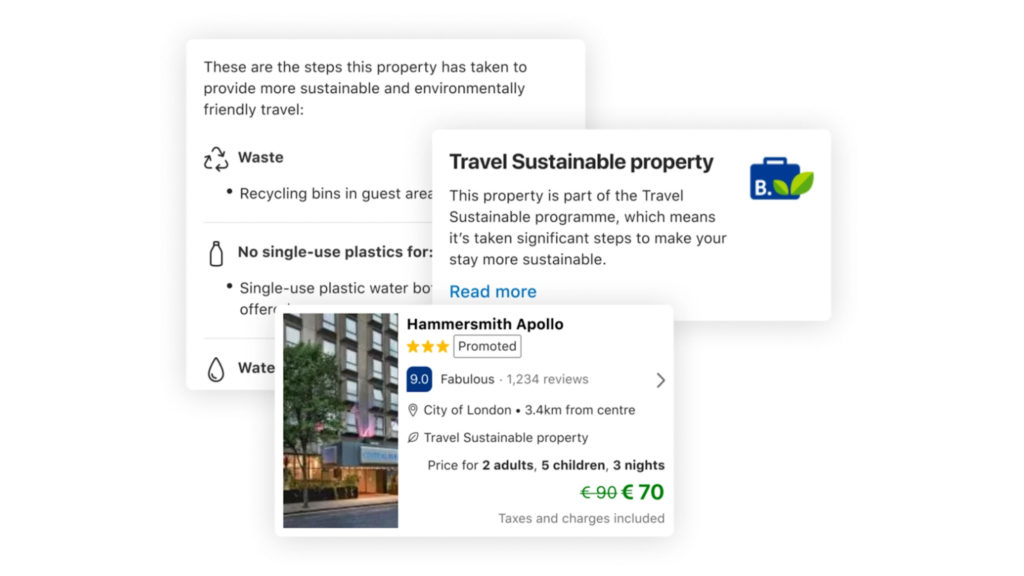
Another thing you can do is to look through the user reviews and photos of your desired accommodation. Do they still have single-use plastic toiletries? Do they serve drinks with a plastic straw? Or do they use bulk dispensers in the bathroom? All of those small indicators will help you to make a better, more sustainable accommodation choice.
You can make an additional impact by adopting sustainable habits. Begin with simple practices like conserving water by turning off the shower when not in use and unplugging electronics when they’re not charging. Also, turn off the air-conditioning when you leave your accommodation and put down the blinders so that your room doesn’t heat up too much over the day.
Relevant Reading
5. Care About Nature and Wildlife
When it comes to traveling responsibly, caring for nature and wildlife is paramount. To minimize your impact on the environment, adopt a few essential principles.
Firstly, never dispose of trash irresponsibly. In some places, you might not find conventional trash bins, so always carry a small bag for your waste and dispose of it properly later.
Secondly, refrain from booking animal entertainment experiences, as they often involve harmful practices and contribute to the exploitation of wildlife. Instead, consider visiting reputable sanctuaries or wildlife rehabilitation centers that prioritize animal welfare.
Lastly, respect the local flora and fauna by refraining from collecting plants, staying on designated paths, and avoiding the temptation to feed wild animals with your food.
Keeping in mind those tips will not only preserve the natural beauty of the places you visit but also contribute to the well-being of their ecosystems and the protection of wildlife.


6. Leave as Little Trace as Possible
The principle of leaving as little trace as possible is key to traveling responsibly. There are several ways to achieve this goal.
First and foremost, consider offsetting your carbon emissions by supporting initiatives that mitigate the environmental impact of your journey.
Additionally, strive to reuse items whenever possible, reducing waste and conserving resources. Always carry a small bag for trash to ensure responsible disposal in areas without proper bins.
When it comes to transportation, opt for the most sustainable options. Walking short distances is not only healthier but also more eco-friendly than taking a car. Prioritize public transportation, carpooling, or ridesharing over solo driving, and consider trains or buses for longer journeys, as they are often more energy-efficient.
Adopting these practices significantly reduces your ecological footprint, while enjoying the beauty of your travel destination.
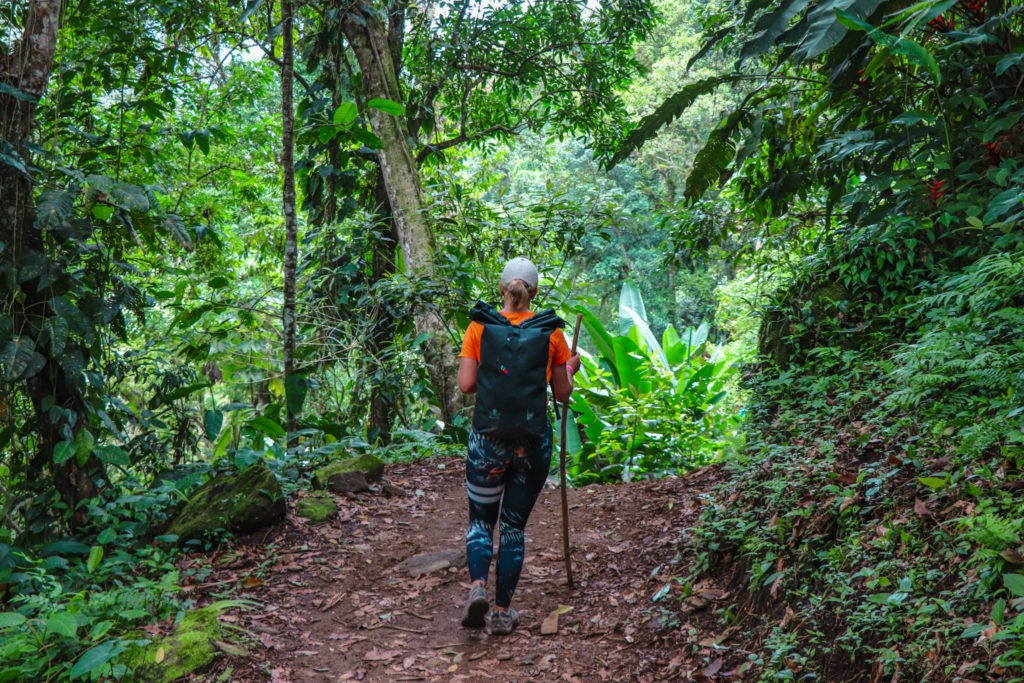
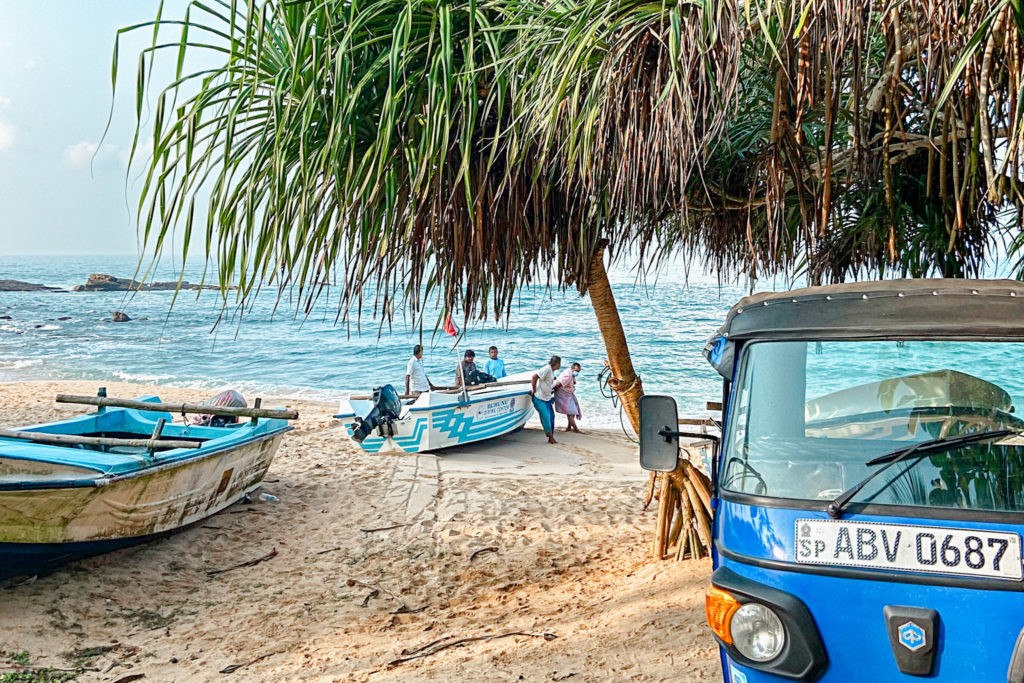
7. Respect and Support Locals
As you embark on your journey towards sustainable travel, it’s crucial to embrace a mindset of respect and support for the local communities you encounter. Imagine stepping into a dear friend’s house, where courtesy and consideration are paramount.
Just as you would in a friend’s home, respect the local customs and traditions, for they form the heart and soul of the places you visit. For instance, if you’re in Japan, learn the art of bowing as a gesture of respect.
Engage with locals, ask questions, and immerse yourself in their culture, whether it’s visiting a local school or sleeping in a homestay. Supporting the communities you visit can be both rewarding and impactful.


Consider buying authentic, locally-made products, like handcrafted textiles in Peru or ceramics in Morocco, directly from artisans.
When eating out, dining at family-owned eateries not only provides you with delicious, authentic cuisine but also fuels the local economy.
Leave a tip when you feel it’s appropriate, especially when it’s not expected. In countries like Cambodia, tipping is not a common practice but can make a meaningful difference in the lives of service workers.
Lastly, your experiences can leave a lasting impact when you share them. Write glowing reviews for sustainable activities or businesses you encounter during your journey. Whether it’s an eco-friendly tour in Costa Rica or a responsible wildlife encounter in South Africa, your positive feedback serves as a guide for fellow travelers looking to make ethical choices and helps sustain local initiatives.


In essence, by respecting and supporting the locals you meet along the way, you not only enrich your travel experience but also contribute to the well-being and cultural preservation of the communities you have the privilege to visit.
Conclusion
In today’s rapidly changing world, traveling has become a common thread connecting us all, offering a chance to explore, learn, and grow.
Yet, with this privilege comes responsibility.
Our sustainable travel tips serve as a compass, guiding you towards journeys that leave a lighter footprint, create a positive impact, and enrich your own experience. Remember that every action, no matter how small, contributes to a greater change.
While you alone may not transform the world, collectively, we can nurture a planet that thrives for generations to come. By choosing destinations committed to sustainability, packing consciously, eating mindfully, respecting nature and wildlife, leaving a minimal trace, and supporting local communities, you not only embrace the essence of sustainable travel but also play a vital role in safeguarding the beauty and diversity of our world.
Traveling, when done sustainably, becomes not just a destination, but a meaningful journey towards a brighter, more harmonious future for all.



